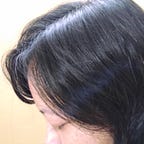A short history of English Studies
Until the first quarter of the nineteenth century, education was a Church of England monopoly. Oxford and Cambridge were the only two universities in operation, and several individual colleges were part of these universities. These colleges operated like monastic institutions, where only men could enroll. These men had to belong to the Anglican church and attend the college chapel. The teachers had to be unmarried ministers, and they lived in the college.
In the college, they were taught classics, divinity, and mathematics. Catholics, Jewish, Methodist, and atheists were not allowed to enroll in the colleges, thereby leading them to be unable to apply for jobs in the professions and the Civil Service. In 1826, a University College in London was founded that would award degrees to men of all religions or none. In 1828, English as a subject had begun to be taught at universities, but it was taught only as a linguistic subject.
Colleges for women opened up in 1869. Women could now attend classes and take exams, but they were barred from obtaining a degree until 1920 at Oxford. Women could be granted actual degrees from the year 1879, starting from the London University.
F.D. Maurice was appointed Professor at King’s college in 1840. He set the principles of the study of English literature that we use today. His teaching methodology helped to study English in a way that we would learn about things and ideas that are fixed and enduring. His idea was that the English literature was expression of the middle class’s values, which represented the essence of Englishness. His idea was that since the aristocracy was essentially international elite, and the poor were concerned only with their basic survival needs, the need for the middle class should be English literature, because they would feel that England was their country.
Teaching English literature to the middle class was a way of ensuring that the sense of nationalism was inculcated into the hearts of the middle-class people. The leaders of the nation would then be able to maintain the political status quo without having to pay more money to the middle-class citizens.
The study of English literature became a substitute for religion, teaching the non-aristocratic classes about the virtues of morality and restraint. The English leaders were afraid that if the lower classes were not educated in morality and restraint, there might arise a rebellion in England something like the French Revolution. The Charter Act, which enabled all adult males the right to vote was also passed in this same time.
Conventionally, it is believed that this method of teaching English began with Matthew Arnold and the publication of the Newbolt Report in 1921. However, as per F.D. Maurice’s method, it can be said that this methodology took place much earlier than Matthew Arnold in the 1850s. It involved a Victorian class guilt about social inequalities such as the desire to improve things for everyone, to spread culture and enlightenment, and to maintain social stability.
Many individual colleges taught English by licensing from London University. Later on, when these colleges became universities, English spread as a degree subject. The problem about what actually constitutes as the knowledge matter of the English subject is still open to debate. It was decided that literature would be studied with language, for English to count as an academic subject.
German universities’ philological model was adopted which was language based. It involved studying grammar, etymology, images, and literary devices. Another method was also used. This was the rhetorical method with an emphasis on public speaking. With the advent of the New Critics in the 1920s, the rhetorical method was dropped and literature began to be studied as literature and not language. I.A. Richards founded the method of Practical Criticism in 1929, which studied literature isolated from its context. Students could now learn about a text only by studying the words on the page.
References-
Peter Barry, Beginning Theory
